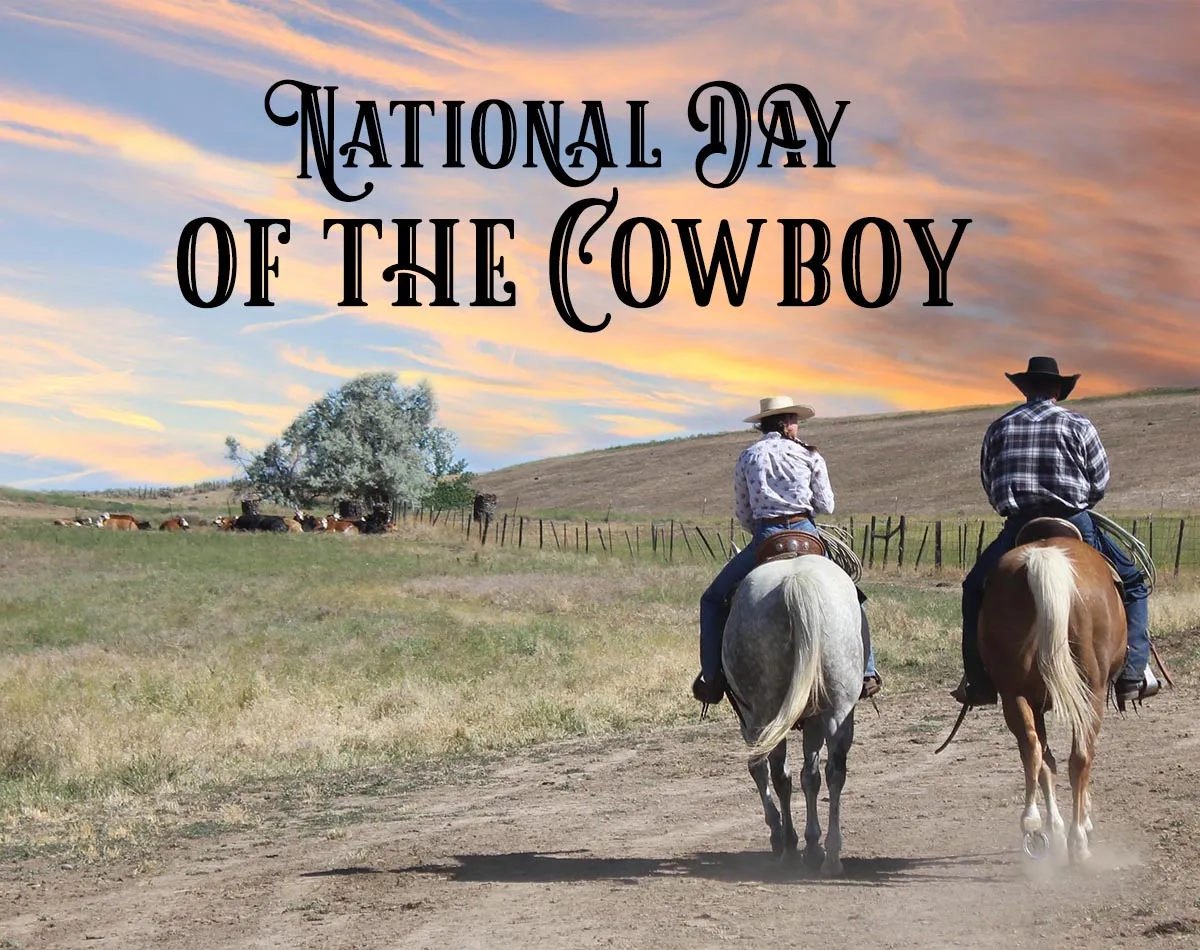
The National Day of the Cowboy is an annual celebration that honors the iconic American cowboy and the rich history and culture surrounding the cowboy way of life. Held on the fourth Saturday in July, this special day pays tribute to the bravery, resilience, and hard work of the cowboys who played a vital role in shaping the American West.
Dating back to 2005 when it was first observed, the National Day of the Cowboy has gained popularity and recognition across the country. It provides an opportunity for people to come together and appreciate the unique traditions, skills, and values that define the cowboy lifestyle.
In this article, we’ll delve into 10 fascinating facts about the National Day of the Cowboy, shedding light on its origins, significance, and the various ways it is celebrated. So saddle up and join us on this journey through the intriguing world of the American cowboy!
Key Takeaways:
- National Day of the Cowboy celebrates the cowboy way of life, including hard work, courage, and respect for the land and animals. It’s a day to honor their contributions to American history.
- The day features cowboy attire, rodeos, historical reenactments, poetry, music, parades, and more, preserving cowboy traditions and passing them on to future generations.
The Origin of the National Day of the Cowboy
The National Day of the Cowboy was first celebrated in 2005 to honor the contributions and rich heritage of cowboys and cowgirls throughout American history.
The Date of Celebration
The National Day of the Cowboy is celebrated annually on the fourth Saturday in July. This day serves as a reminder of the cowboy’s importance in shaping the American West.
A Day to Appreciate the Cowboy Way of Life
The National Day of the Cowboy is a day to recognize and appreciate the values, traditions, and skills embodied by cowboys, such as hard work, courage, and respect for the land and animals.
Cowboy Attire
Dressing like a cowboy or cowgirl is a common tradition on the National Day of the Cowboy. People often wear cowboy hats, boots, denim jeans, and plaid shirts to embrace the cowboy culture.
Events and Rodeos
On the National Day of the Cowboy, various events and rodeos take place across the country. These events include bull riding, barrel racing, and roping competitions, showcasing the skills of modern-day cowboys.
Historical Reenactments
Many historical reenactments of iconic cowboy events, such as cattle drives and gunfights, are organized on the National Day of the Cowboy. These reenactments provide a glimpse into the cowboy era and its significance in American history.
Cowboy Poetry and Music
Cowboy poetry and music are an integral part of the National Day of the Cowboy celebrations. Poets and musicians gather to perform traditional cowboy songs and recite poetry that reflects the cowboy way of life.
The National Day of the Cowboy as a Cultural Heritage Day
The National Day of the Cowboy has been recognized as a cultural heritage day by several states in the United States. It serves as a way to preserve and honor the cowboy heritage and its impact on American culture.
Cowboy Parades
Many cities and towns hold cowboy parades on the National Day of the Cowboy. These parades feature horseback riders, decorated wagons, and marching bands to celebrate the cowboy spirit.
Preserving Cowboy Traditions
The National Day of the Cowboy aims to preserve cowboy traditions and pass them on to future generations. It provides an opportunity for people to learn about the history, skills, and values associated with being a cowboy.
Conclusion
In conclusion, the National Day of the Cowboy is a special celebration that pays tribute to the rich cowboy heritage and culture in the United States. From its humble beginnings as a day to recognize the contributions of cowboys to the development of the country’s western frontier, it has now transformed into a nationwide event that showcases the cowboy way of life.Through rodeos, parades, historical reenactments, and various other activities, people of all ages and backgrounds come together to honor the legacy of the cowboy. It is a day that reminds us of the values of hard work, resilience, and respect for nature that cowboys embody.So, on the National Day of the Cowboy, dust off your cowboy hat, put on your boots, and join in the festivities. Whether you’re a true cowboy or just someone who appreciates the cowboy spirit, it’s a day to celebrate and cherish the cowboys who have shaped American history.
FAQs
1. When is the National Day of the Cowboy celebrated?
The National Day of the Cowboy is celebrated on the fourth Saturday in July each year.
2. Why is the National Day of the Cowboy important?
This day is important because it honors the contributions of cowboys to American history and culture, preserving the cowboy way of life for future generations.
3. How can I celebrate the National Day of the Cowboy?
There are various ways to celebrate, such as attending local events, participating in rodeos, dressing up in cowboy attire, or simply learning more about cowboy history and traditions.
4. Is the National Day of the Cowboy only celebrated in the United States?
Yes, the National Day of the Cowboy is primarily celebrated in the United States, where cowboy culture has a deep-rooted history.
5. Can anyone celebrate the National Day of the Cowboy?
Absolutely! The National Day of the Cowboy is open to anyone who appreciates cowboy culture and wants to celebrate the contributions of cowboys to American heritage.
6. Are there any specific traditions associated with the National Day of the Cowboy?
Traditions may vary regionally, but common activities include rodeos, parades, live music performances, cowboy poetry readings, and historical reenactments.
7. Is the National Day of the Cowboy a public holiday?
No, the National Day of the Cowboy is not a public holiday, but it is recognized and celebrated by various organizations, communities, and individuals across the country.
If you're fascinated by the rich tapestry of Western heritage, don't miss our article on the Calgary Stampede, which delves into this iconic celebration. For music lovers, our piece on country music facts offers insights into this beloved genre. Equestrian enthusiasts will find our article on equestrian facts a treasure trove of information.
Was this page helpful?
Our commitment to delivering trustworthy and engaging content is at the heart of what we do. Each fact on our site is contributed by real users like you, bringing a wealth of diverse insights and information. To ensure the highest standards of accuracy and reliability, our dedicated editors meticulously review each submission. This process guarantees that the facts we share are not only fascinating but also credible. Trust in our commitment to quality and authenticity as you explore and learn with us.


